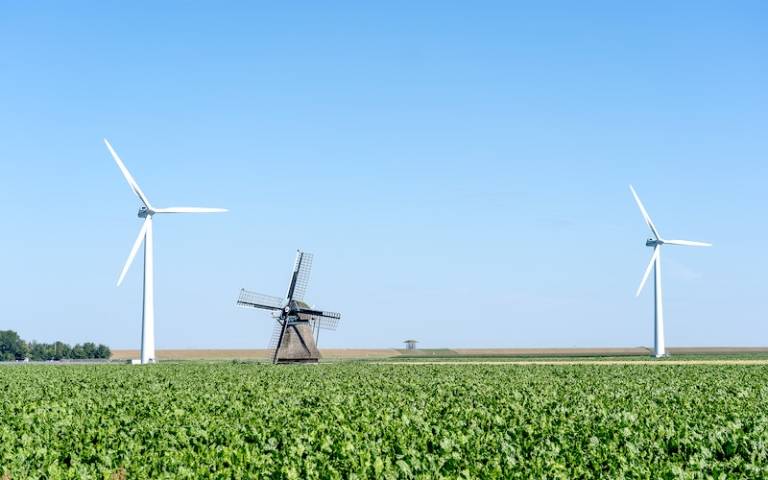UCL researchers identify which European regions need most help to benefit from the energy transition
14 February 2023
A new paper featuring UCL Institute for Sustainable Resources researchers highlights which regions in Europe need support to help transition their economies to a low-carbon future

The energy transition is urgent and will create huge economic opportunities. But some industries will decline – and regions dependent on them are vulnerable unless they diversify. A new paper by Will McDowall, Tobias Reinauer, Panagiotis Fragkos, Michal Miedzinski and Jennifer Cronin maps regional vulnerability in Europe.
The authors used an energy model to explore how the European energy system might change to meet climate targets, and what this might mean for regions that are heavily dependent on high-carbon jobs today. The results show that a few regions are much more vulnerable than others, and that Southern and Eastern Europe appear to be most vulnerable: they have many regions that combine high employment in fossil fuel sectors with already high unemployment and a weak track record in the innovation that drives new industries. Taking action now to support vulnerable regions to diversify will help avoid the damaging social consequences of job losses - the energy transition is inevitable, but policymakers need to take seriously the need to make it fair.
The work was funded by the European Horizon programme, through the INNOPATHS and CINTRAN projects. The team from UCL consisted of Will McDowall, Tobias Reinauer, Michal Miedzinski and Jen Cronin (Tobias is now at the Danish Energy Agency, and Michal is at the EU's JRC). The authors partnered with the E3Modelling Lab in Greece.
Links:
- To read the article, go here.
- To learn more about Innopaths, go here.
- To learn more about Cintran, go here.
- To learn about the work of Will McDowall, go here.
- To learn about the work of Michael Miedzinski, go here.
- To learn about the work of Tobias Reinauer, go here.
- To learn about the work of Jen Cronin, go here.
 Close
Close

